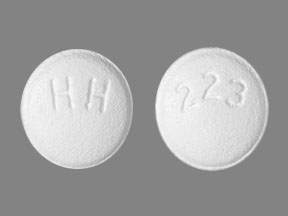Risperidone and Alcohol/Food Interactions
There are 4 alcohol/food/lifestyle interactions with risperidone.
Risperidone Food
Moderate Food Interaction
RisperiDONE oral solution should not be mixed with tea or cola. It may be taken with water, coffee, orange juice, or low-fat milk. You should avoid the use of alcohol while being treated with risperiDONE. Alcohol can increase the nervous system side effects of risperiDONE such as dizziness, drowsiness, and difficulty concentrating. Some people may also experience impairment in thinking and judgment. Talk to your doctor or pharmacist if you have any questions or concerns.
Switch to professional interaction data
Risperidone Obesity
Moderate Potential Hazard, Moderate plausibility
atypical antipsychotic agents - hyperglycemia/diabetes
Hyperglycemia, in some cases extreme and associated with ketoacidosis or hyperosmolar coma or death, has been reported with the use of atypical antipsychotic agents. Patients with diabetes should be monitored for worsening control of blood glucose when treated with these agents. It is recommended that patients with risk factors for diabetes mellitus starting treatment with atypical antipsychotics should undergo fasting blood glucose testing at the beginning of treatment, and periodically thereafter. Any patient treated with atypical antipsychotics should be monitored for symptoms of hyperglycemia including polydipsia, polyuria, polyphagia, and weakness. Patients who develop symptoms of hyperglycemia during treatment with atypical antipsychotics should undergo fasting blood glucose testing. In some cases, hyperglycemia has resolved when treatment with these agents was discontinued; however, some patients required continuation of anti-diabetic treatment despite discontinuation of the atypical antipsychotic drug.
Risperidone High Cholesterol (Hyperlipoproteinemia, Hypertriglyceridemia, Sitosterolemia)
Moderate Potential Hazard, Moderate plausibility
atypical antipsychotic agents - lipid alterations
Atypical antipsychotic drugs have been associated with undesirable alterations in lipid levels. While all agents in the class have been shown to produce some changes, each drug has its own specific risk profile. Before or soon after initiation of antipsychotic medications, a fasting lipid profile should be obtained at baseline and monitored periodically during treatment.
Risperidone Obesity
Moderate Potential Hazard, Moderate plausibility
atypical antipsychotic agents - weight gain
Weight gain has been observed with atypical antipsychotic use. While all agents in the class have been shown to produce some changes, each drug has its own specific risk profile. When treating pediatric patients with atypical antipsychotic agents, weight gain should be monitored and assessed against that expected for normal growth. Monitor weight at baseline and frequently thereafter.
Switch to professional interaction data
Risperidone drug interactions
There are 679 drug interactions with risperidone.
Risperidone disease interactions
There are 20 disease interactions with risperidone which include:
- dementia
- acute alcohol intoxication
- CNS depression
- NMS
- liver disease
- QT interval prolongation
- renal dysfunction
- aspiration
- seizure
- hematologic abnormalities
- hyperglycemia/diabetes
- hypotension
- lipid alterations
- priapism
- renal impairment
- weight gain
- depression
- hyperprolactinemia
- parkinsonism
- tardive dyskinesia
More about risperidone
- risperidone consumer information
- Check interactions
- Compare alternatives
- Pricing & coupons
- Reviews (731)
- Drug images
- Side effects
- Dosage information
- Patient tips
- During pregnancy
- Support group
- Drug class: atypical antipsychotics
- Breastfeeding
Related treatment guides
Drug Interaction Classification
| Highly clinically significant. Avoid combinations; the risk of the interaction outweighs the benefit. | |
| Moderately clinically significant. Usually avoid combinations; use it only under special circumstances. | |
| Minimally clinically significant. Minimize risk; assess risk and consider an alternative drug, take steps to circumvent the interaction risk and/or institute a monitoring plan. | |
| No interaction information available. |
Further information
Always consult your healthcare provider to ensure the information displayed on this page applies to your personal circumstances.


